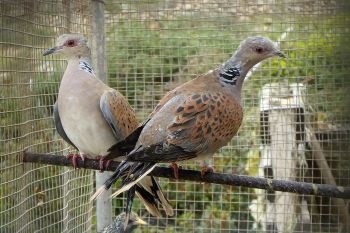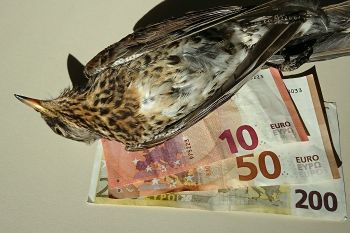Why do people hunt wild birds?
For thousands of years, wild birds - especially migratory birds - have been an important seasonal addition to the diet of our ancestors. Even way back in Roman times, colourful or particularly beautiful songbirds were kept in cages because of their ornamental value. Live birds have also been used for mining to indicate mine gas, from the Middle Ages until just a century ago. Some bird species are often regarded as 'pests' - for example, birds of prey are often considered a thorn in the side of some pigeon fanciers, poultry and game keepers.
Over the course of time, many bird hunting and trapping traditions have developed and unfortunately remain widespread, especially along the main migratory 'bottlenecks' in the Mediterranean. The shot or trapped birds often end up in kitchens, in cages, in trophy collections or as live decoy for hunting other individuals from the same species. Selling song birds for these purposes on the black market can be a significant income for people in certain parts of Europe.
CABS has been campaigning to put an end to bird trapping and hunting since the mid-1970s. Find out more about our work under the Campaigns and Operations section of our website.
Wild birds for consumption
Wild birds are still popular dishes in many countries, especially in autumn when they are a welcome addition to the menu.
Collecting wild birds
For thousands of years, humans have kept wild birds in cages. Most of the time it's about pretty looking or beautifully singing animals.
Control and killing
There can be conflicts between birds and humans. Most people affected are resigned to it, others reach for traps, poison or the shotgun.
Wild birds as decoys
In some countries, the use of live decoys is permitted in hunting. They are crammed into small cages and placed around hunting sites.
Wild birds as a source of income
As soon as a bird species becomes a delicacy, big profits can be made. People can also make a lot of money with cage birds.
Bird hunting as a tradition
Bird-trapping and hunting are often based on traditions. It is not only about the activities as such, but often also about identity.












